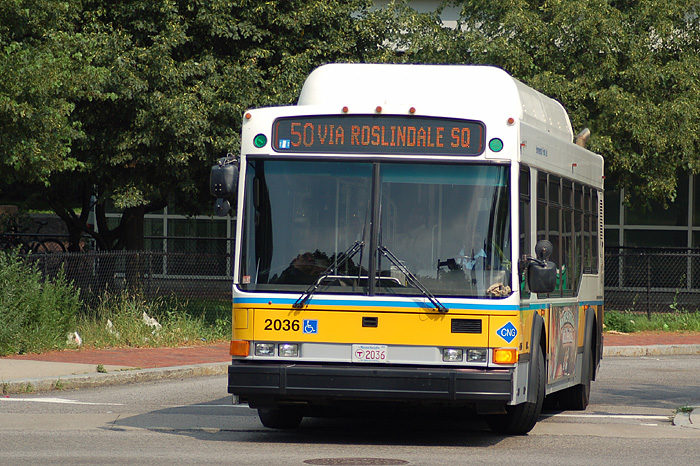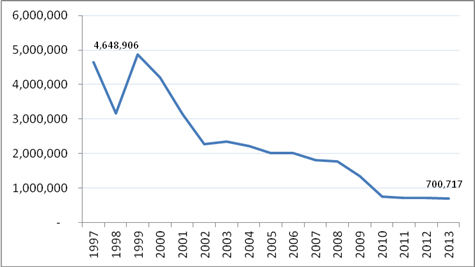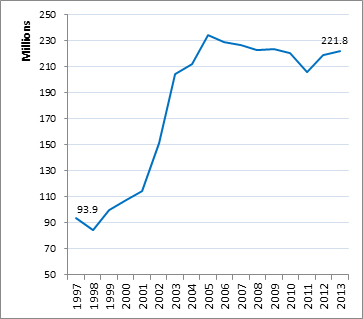Study: “Pacheco Law” Has Cost MBTA At Least $450 Million Since 1997
Report presented to legislative leaders and state budget conferees during deliberations about suspending the Pacheco Law at the MBTA
Report confirms U.S. Department of Transportation study showing 41.3 percent savings by large bus transit agencies using competitively procured bus services
News coverage: Boston Herald, Boston Business Journal, State House News Service, WGBH News, WBUR RadioBoston, Boston Herald Editorial, The Boston Globe, WWLP, Greater Boston
BOSTON – The state auditor’s rejection of two contracts to outsource the operation and maintenance of 38 percent of the MBTA’s bus service under provisions of the so-called Pacheco Law has cost the T at least $450 million since 1997, according to a new study published by Pioneer Institute.
“Since rejection of the bus contracts and another contract that would have provided free bus shelter maintenance, the T has understandably never tried to contract out any more services,” said Pioneer Institute Research Director and former Massachusetts Inspector General Greg Sullivan, author of “The Pacheco Law has cost the MBTA more than $450 million: Here’s the evidence.” “The $450 million in lost savings doesn’t take into account additional savings that could have been achieved through competitive contracting of other services.”
Enacted in 1993, the so-called Pacheco Law, named after its principal sponsor, state Sen. Marc Pacheco (D-Taunton), is the country’s most restrictive privatization law. As part of his MBTA reform proposal, Gov. Charlie Baker is calling for the T to be exempted from the law. The House of Representatives included a five-year suspension of the Pacheco Law for the MBTA in its budget. The state Senate has proposed no changes.
Sullivan finds that rejection of the bus contracts cost the MBTA $80.4 million from 1998-2002 (the term of the proposed contracts). Using the same escalation rate as the T’s agency-provided bus service, the total foregone savings from the time the contracts were rejected in 1997 until 2015 rises above $450 million.
Consistent savings
The report shows that the magnitude of savings is consistent with savings experienced by large transit agencies across the country that competitively procure bus service:
- In 2013, the average cost for purchased bus service among U.S. transit agencies serving populations greater than one million was $7.58 per revenue mile, 41.3 percent less than the $12.92 cost of directly-provided bus service.
- In 2013, the nation’s largest providers of hybrid bus service, i.e., those that both purchase and provide bus service directly, paid an average of $11.41 per mile for their directly provided service versus $6.38 per mile for purchased service, an average savings of 44.1 percent per mile.
- Twelve Massachusetts Regional Transit Authorities provided a total of 22.7 million revenue miles of purchased bus service in 2013 at an average cost of $6.38 per revenue mile, 61.6 percent less than the MBTA’s direct service cost per revenue mile of $16.63. The RTA’s cost per revenue hour was $88.09 in 2013, 46.8 percent less than the MBTA’s cost of $165.50.
- The National Center for Transit Research, which is sponsored in part by the U.S. Department of Transportation, found that agencies paid 40.4 percent less contracting for fixed-route bus service than by providing it directly in 2008. In 2013, the average cost of purchased bus services for agencies serving populations of more than one million was 41.3 percent lower than providing the service directly.
Bus Outsourcing collapses at the T
The MBTA was the nation’s seventh largest provider of purchased bus service in 1997, when it purchased 4.65 million miles worth of service. In the wake of the state auditor’s rejection of the bus contracts under the Pacheco Law, the amount of purchased bus service at the MBTA fell from 4.6 million to 0.7 million miles from 1997 to 2013. See the figures below.
Meanwhile in the rest of the US over the same 1997-2013 period, American transit agencies serving areas with populations of greater than one million more than doubled the amount of purchased bus service they provided, from 93.9 million miles annually to 221.8 million. (The amount of direct, agency-provided annual bus service over that same period decreased by 82 million miles.)
A Costly Anti-Competition Decision for the T
Back in 1997, the MBTA paid $1.33 per mile for purchased bus service – the lowest in the country. At $8.10 per mile in 1997, the T’s directly provided bus service was the sixth highest in the country and about six times more than its purchased service rate.
Notwithstanding this fact, the State Auditor rejected the proposed bus contracts. This was in great part due to the arguments of the MBTA employee organizations that over the 1998-2002 period they could deliver bus services for $5 million less than the proposed contract by improving efficiency.
That never happened. Over what would have been the five-year term of the proposed contract, T bus operating costs rose from $85.10 per bus hour to $100.73, an 18.4 percent increase. The private contract had called for a rate of $74.34 per bus hour.
“It strains credulity that the law requires the cost of a private contract to be compared to the hypothetical cost were the affected public employees to work ‘in the most cost-effective manner,'” said Pioneer Executive Director Jim Stergios. “Public employees are never held accountable to operating in that ‘cost-effective manner.’ The Pacheco Law is all about preserving the status quo.”
The law also regulates the pay and benefits of private employees working on a state contract. If any work on the contract is to be performed outside Massachusetts, the amount of foregone taxes is added to the bid cost. There is no corresponding provision to account for the fact that revenue is generated for the commonwealth when the services are delivered by tax-paying private businesses.
Finally, the law allows the state auditor to make the final, binding and unilateral decision about whether a proposed contract goes forward. Contracts can be rejected for a range of reasons including the auditor’s determination that the proposed contract is not “in the public interest.”
Why would the contracts have saved the T so much money?
One reason is the inordinately high cost of T-provided bus service. The Federal Transit Authority-sponsored Integrated National Transit Database Analysis System (INTDAS) designates peer transit agencies for comparisons. The cost of MBTA bus service is 36.5 percent higher than the average of its five INTDAS peers.
But the biggest reason for the MBTA’s high costs is bus maintenance. The T employs 59.6 percent more personnel; maintenance costs per mile are 92.2 percent higher and the number of labor hours per vehicle mile is 65.7 percent higher compared to its five peer agencies.
What is clear is that the MBTA’s high costs are not the result of the age of its bus fleet or our region’s harsh local climate. Sullivan finds that from 2006 to 2013, T buses were just 14 days older than the average of the Authority’s peer agencies. As for snow, MBTA bus costs from 2006-2013 were 53 percent higher than the average of the six largest bus systems that get more snow annually than Boston does.
Gregory W. Sullivan is Pioneer’s Research Director, and oversees the Centers for Better Government and Economic Opportunity. Prior to joining Pioneer, Sullivan served two five-year terms as Inspector General of the Commonwealth of Massachusetts. Previously, Greg held several positions within the state Office of Inspector General, and was a 17-year member of the Massachusetts House of Representatives. Greg holds degrees from Harvard College, The Kennedy School of Public Administration, and the Sloan School at MIT.
Pioneer Institute is an independent, non-partisan, privately funded research organization that seeks to improve the quality of life in Massachusetts through civic discourse and intellectually rigorous, data-driven public policy solutions based on free market principles, individual liberty and responsibility, and the ideal of effective, limited and accountable government.





